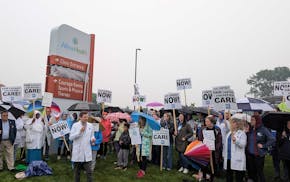Christmas is over, New Year is a few days away and Hanukkah celebrations run through Jan. 2. I hope you're having a wonderful holiday season.
The dawn of the New Year is an irresistible time for retrospection and prognostication. I enjoy the various "best" lists of books, movies, music and the like, mostly to see what I might have missed during the year. Financial firms have released their best guesstimates for the economy and markets in the coming year. These forecasts are useful at highlighting trends, although the track record on prediction is poor.
Many of us (including me) also take the time to mull over what we could do better in the New Year. Health and personal finances usually land high on the list. The latest annual New Year's Resolution Study by Allianz Life found the biggest priority is health and wellness among 45% of those surveyed. Looking at personal finances, 41% say they are more stressed about their finances than last year; 38% say financial stability is their focus in 2025; and 24% plan on building emergency savings, up from 17% in 2023.
Another tradition at this time of year is to mock well-intentioned resolutions.
"Yesterday, everybody smoked his last cigar, took his last drink and swore his last oath," Mark Twain wrote on Jan. 1, 1863. "Today, we are a pious and exemplary community. Thirty days from now, we shall have cast our reformation to the winds and gone to cutting our ancient shortcomings considerably shorter than ever."
Point taken! Yet reflecting on the past year and thinking about ways to improve isn't a waste of time. It pays to periodically step back and think about what matters. The calendar is a prompt and, while it's fun to highlight our failures, sometimes we find a path to better habits.
Two small suggestions for those making resolutions. First, choose a resolution or resolutions important enough to merit time and effort. Time is the scarce resource, so don't try to do too much at once. Second, a smart starting point is to remember what's good about the holidays.
The reciprocity, thoughtfulness and mutual benefits of gift-giving is good for us. The generosity that drives the spirit of the gift-giving season can anchor your resolutions for doing better in 2025. You're not alone, and tapping into the generosity and help of family, extended family, friends and community raises the odds of success.
Chris Farrell is senior economics contributor for "Marketplace" and a commentator for Minnesota Public Radio.

Bushel Boy, Minnesota's local tomato grower, sold
After 60 years, federal cuts shutting down Job Corps center in St. Paul

In a first, Minnesota doctors walk their own picket line, then hustle to see patients
It's harder to find a job this year, especially a corporate position

